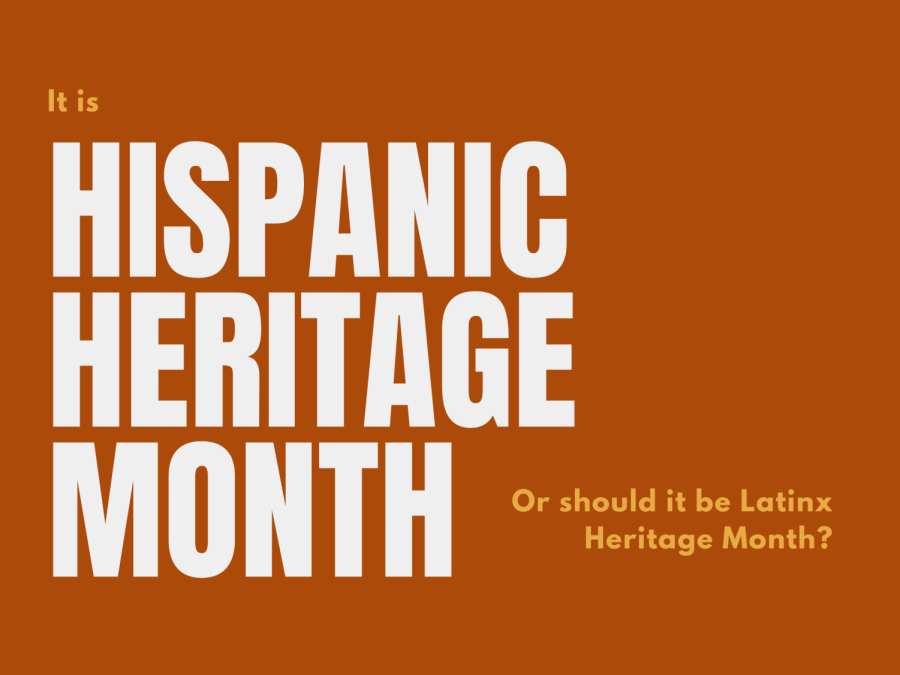Hispanic Heritage Month (Or Latino/Latinx/Latine Heritage Month)
What’s the difference between Hispanic, Latino, Latinx, and Latine?
October 14, 2021
It is the end of National Hispanic Heritage Month in the United States, which spans from September 15th – October 15th. Though, the term “Hispanic” itself is one that is highly debated, for the pan-ethnic identity is typically self-determined on official surveys like the Census.
There are more than 62 million people in the U.S. who identify as Hispanic or Latino, but an increasingly asked question is, who is Hispanic? For can you really group such a huge group of multinational and multiracial people under one label?
Originally, “Latinos” were all identified as “Mexican” by Census Bureau counters in the 1930s. It was not until 40 years later that the question evolved into whether or not you identified as “Mexican, Puerto Rican, Cuban, Central or South American, Other Spanish”. Though this caused a misunderstanding of the term, “Central or South American” and also undercounted the population. By the 2000s, the labels were narrowed down to, “Spanish/Hispanic/Latino”.
The term “Hispanic” was and is widely disliked, because many felt that it was a term forced upon the population by the U.S. government. Additionally, “Hispanic” is a direct translation of “Hispano” which is defined as someone who descended from Spain. So many Latinos feel that that is a nod to Spanish colonization while erasing Pre-Columbian history, Indigenous, and Afro-Latino communities.
“Latino” also has its own connotations, as in the 1980s, Latinos were seen as foreigners and more recently, the LGBTQIA community has opted for the newer term “Latinx”, as it provides a gender-neutral label. This is more widely used among younger generations, as 76% of Latino adults have not even heard of Latinx. There is also pushback to Latinx, as there is no pronunciation of “x” in the Spanish language. So “Latine” has become another gender-inclusive option.
But which term to label such a diverse group of people is only the beginning of the conversation. Who is considered Latino or Hispanic is still unclear, and the history of those who identified with the label is often forgotten. While Hispanic Heritage Month will soon end, these conversations will still go on.






